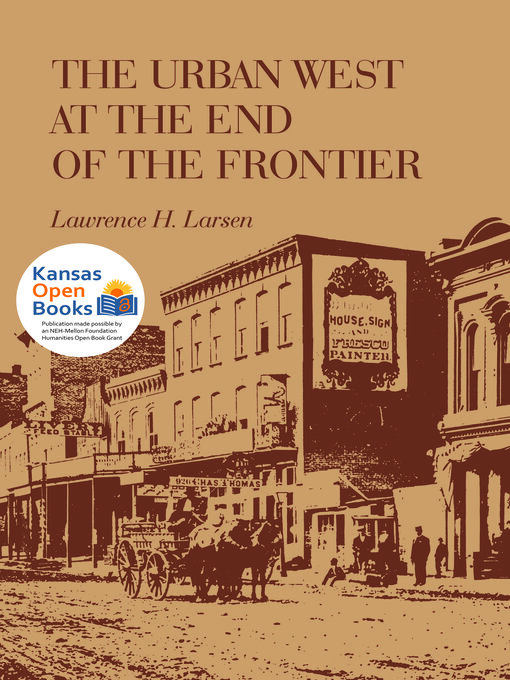Historians have largely ignored the western city; although a number of specialized studies have appeared in recent years, this volume is the first to assess the importance of the urban frontier in broad fashion. Lawrence H. Larsen studies the process of urbanization as it occurred in twenty-four major frontier towns. Cities examined are Kansas City, St. Joseph, Lincoln, Omaha, Atchison, Lawrence, Leavenworth, Topeka, Austin, Dallas, Galveston, Houston, San Antonio, Denver, Leadville, Salt Lake city, Virginia City, Portland, Los Angeles, Oakland, Sacramento, San Francisco, San Jose, and Stockton.
Larsen bases his analysis of western cities and their problems on social statistics obtained from the 1880 United States Census. This census is particularly important because it represents the first time that the federal government regarded the United States as an urban nation. The author is the first scholar to do a comprehensive investigation of this important source.
This volume gives an accurate portrayal of western urban life. Here are promoters and urban planners crowding as many lots as possible into tracts in the middle of vast, uninhabited valleys. Here are streets clogged with filth because of inadequate sanitation systems; people crowded together in packed quarters with only fledgling police and fire services. Here, too, is the advance of nineteenth-century technology: gaslights, telephones, interurbans.
Most important, this study dispels the misconceptions concerning the process of exploration, settlement, and growth of the urban west. City building in the American West, despite popular mythology, was not a response to geographic or climatic conditions. It was the extension of a process perfected earlier, the promotion and building of sites—no matter how undesirable—into successful localities. Uncontrolled capitalism led to disorderly development that reflected the abilities of individual entrepreneurs rather than most other factors. The result was the establishment of a society that mirrored and made the same mistakes as those made earlier in the rest of the country.
Open access edition funded by the National Endowment for Humanities and the Andrew W. Mellon Foundation Humanities Open Book Program.

